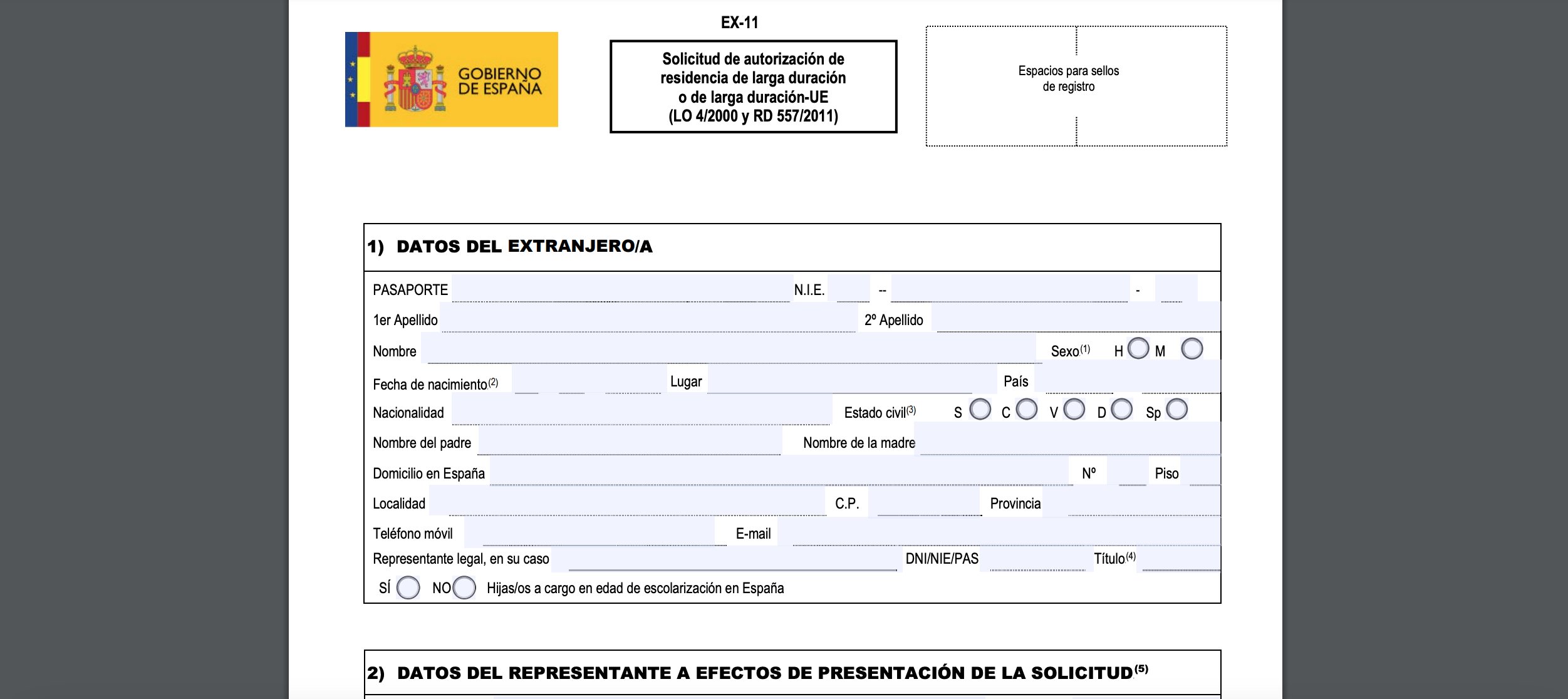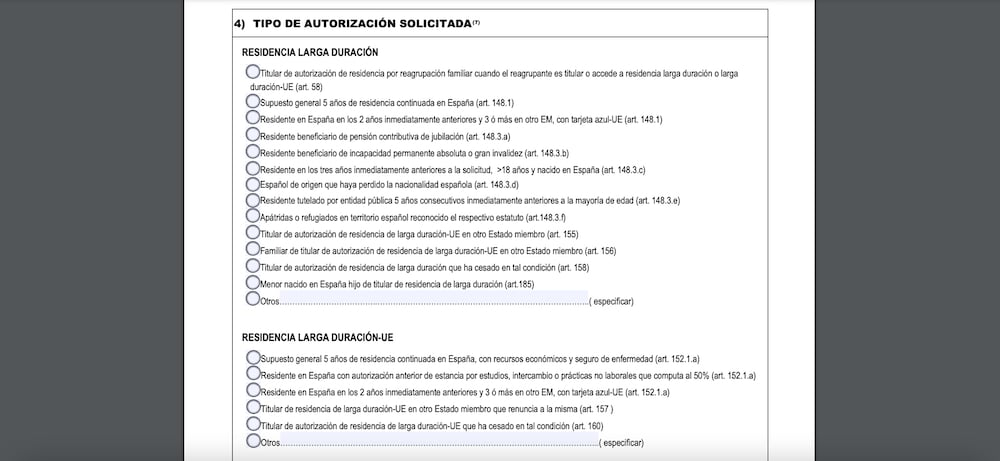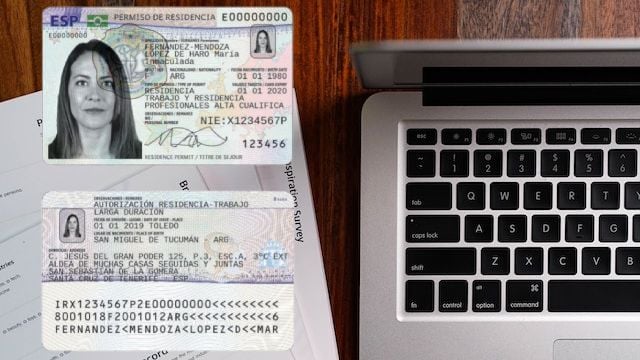If you’ve been registered as a resident in Spain for a while, you’ll need to swap your temporary residency card, such as the Tarjeta de Identidad de Extranjero or TIE, for a long-term one.
You can apply for your long-term residency card, known as Tarjeta de Larga Duración in Spanish, after being registered as a resident and living in Spain continuously for five years. It’s often referred to as tarjeta de residencia permanente (permanent residency card), and it even states permanente on the card, but it’s not technically true that it’s a permanent card that can’t cease to be valid.
One benefit of the long-term residency is that after you’ve lived continuously in Spain with a temporary residence permit, you will not be asked to meet the same rigorous requirements or present the same paperwork when changing it to long-term. It’s more like a renewal than an application.
Once you’re granted your long-term residency, this will allow you to enjoy better residency conditions in Spain, including the right to work under the same conditions as any Spanish national.
READ ALSO: What’s better in Spain: Permanent residency or citizenship?
Getting your long-term residency card
Fortunately, and unlike many other Spanish administrative tasks, exchanging your temporary card for a long-term residency one is a fairly straightforward process. It’s recommended that you begin the process at least two months before your current residency card is set to expire.
In order to do this you’ll need to complete the EX-11 application form (solicitud de autorización de residencia de larga duración).
Who should complete the EX-11 form?
- People who have been continuously resident in Spain for 5 years.
- People resident in Spain in the 2 years immediately preceding the application and 3 or more in another EU country, as an EU Blue Card holder.
- A Spanish resident who is a beneficiary of a contributory retirement pension.
- A Spanish resident who is a beneficiary of permanent incapacity benefit or who has a severe disability.
- People who were residents in the 3 years immediately preceding the application, over 18 years of age, and born in Spain.
- A Spaniard who lost their Spanish nationality.
- A Spanish resident under the guardianship of a public entity for 5 consecutive years, immediately preceding reaching legal age.
- Stateless people or refugees with recognised status.
- Holders of an EU long-term residence permit in another EU country.
- A family member of a holder of an EU long-term residence permit in another EU country.
- A holder of a long-term residence permit who has ceased to be a long-term resident.
- A child born in Spain who is the child of a long-term residence permit holder.
READ ALSO: Q&A: Everything you need to know about Spanish residency for Brits post-Brexit
How to complete the EX-11 form
Step 1: The first page of the form is very straightforward. It will ask for all your personal details such as name, date of birth, address and contact details. You will also need your Spanish NIE.

Step 2: On page two of the form, you will have to choose the situation that is applicable to you, from the list of people who can complete the form above.
If you’re an EU citizen, you will skip the first section on page two and move directly to the section on long-term residence EU. Next, you will choose the option that applies to you from the list below.
- 5 years of continuous residence in Spain, with financial resources and health insurance.
- Resident in Spain with previous authorisation to stay for studies, exchange or non-labour activities.
- Resident in Spain for the 2 immediately preceding years and 3 or more in another EU country, with an EU Blue card.
- A holder of a long-term residence card from another EU country who has renounced it.
- A holder of a long-term residence permit from the EU who has ceased to be so.
- Other (specify).

When you have completed this you will sign and date the form.
Step 3: The final part of the form is reserved for all your supporting documents. The type of documentation you need will depend on your specific circumstance but you will need:
- Your existing, expiring residency card
- Your passport, plus a photocopy
- 3 passport-sized photos
- Proof of having paid the corresponding fee – tasa modelo 790 Código 012
How do I submit the application?
Once you’ve got all your documents in order, you can complete the renewal process at your local police station or foreigner’s office (extranjería). Remember that you will need a cita previa or prior appointment before you go, you can’t just turn up. You can apply for the appointment online by finding your nearest extranjería office.
Keep in mind, there’s no point in starting the renewal process if you can’t prove that you have lived continuously in Spain for the last five years. This can be proven by providing your rental contracts from the last five years, as well as tax returns, payrolls, and utility bills – anything that could help demonstrate you have actually been here.




 Please whitelist us to continue reading.
Please whitelist us to continue reading.
When does this change become effective?